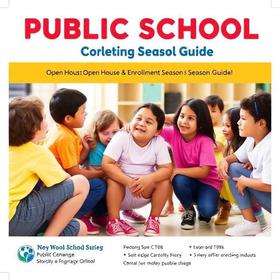Top Rankings
Rye Neck Union Free School District ranks among the top 20% of public school district in New York for:
Category
Attribute
Overall Rank
Highest overall rank (Top 10%)
Math Proficiency
Highest math proficiency (Top 10%)
Reading/Language Arts Proficiency
Highest reading/language arts proficiency (Top 10%)
Science Proficiency
Highest science proficiency (Top 5%)
Diversity
Most diverse schools (Top 1%)
For the 2025-26 school year, there is 1 public high school serving 474 students in Rye Neck Union Free School District. This district's average high testing ranking is 10/10, which is in the top 10% of public high schools in New York.
Public High School in Rye Neck Union Free School District have an average math proficiency score of 77% (versus the New York public high school average of 55%), and reading proficiency score of 92% (versus the 59% statewide average).
Public High School in Rye Neck Union Free School District have a Graduation Rate of 95%, which is more than the New York average of 89%.
The school with highest graduation rate is Rye Neck Senior High School, with ≥95% graduation rate. Read more about public school graduation rate statistics in New York or national school graduation rate statistics.
Minority enrollment is 42% of the student body (majority Hispanic), which is less than the New York public high school average of 61% (majority Hispanic).
Overview
This School District
This State (NY)
# Schools
4 Schools
1,459 Schools
# Students
1,482 Students
947,121 Students
# Teachers
139 Teachers
84,923 Teachers
Student-Teacher Ratio
11:1
11:1
Student By Grade
District Rank
Rye Neck Union Free School District, which is ranked #68 of all 1,008 school districts in New York (based off of combined math and reading proficiency testing data) for the 2022-2023 school year.
The school district's graduation rate of 90-94% has decreased from 95% over five school years.
Overall District Rank
#59 out of 1017 school districts
(Top 10%)
(Top 10%)
Math Test Scores (% Proficient)
81%
52%
Reading/Language Arts Test Scores (% Proficient)
71%
49%
Science Test Scores (% Proficient)
95%
78%
Graduation Rate
(21-22)90-94%
87%
Students by Ethnicity:
Diversity Score
0.59
0.72
% American Indian
n/a
1%
% Asian
9%
9%
% Hispanic
22%
30%
% Black
2%
18%
% White
60%
39%
% Hawaiian
n/a
n/a
% Two or more races
7%
3%
All Ethnic Groups
District Revenue and Spending
The revenue/student of $30,464 in this school district is less than the state median of $31,324. The school district revenue/student has stayed relatively flat over four school years.
The school district's spending/student of $37,642 is higher than the state median of $32,199. The school district spending/student has stayed relatively flat over four school years.
Total Revenue
$45 MM
$78,541 MM
Spending
$56 MM
$80,737 MM
Revenue / Student
$30,464
$31,324
Spending / Student
$37,642
$32,199
Best Rye Neck Union Free School District Public High Schools (2025-26)
School
(Math and Reading Proficiency)
(Math and Reading Proficiency)
Location
Quick Facts
Rank: #11.
Rye Neck Senior High School
(Math: 75-79% | Reading: 90-94%)
Rank:
Rank:
10/
Top 5%10
300 Hornidge Rd
Mamaroneck, NY 10543
(914) 777-4800
Mamaroneck, NY 10543
(914) 777-4800
Gr: 9-12 | 474 students Student-teacher ratio: 11:1 Minority enrollment: 42%
Recent Articles

Charter Schools vs Public Schools 2025: Key Differences & Trends
Explore updated 2025 insights comparing charter schools vs public schools, enrollment, academic outcomes, funding, and real-world examples for families and educators.

Are Public Schools Ready for the 21st Century? 2025 Update
Explore 2025 insights on whether public schools are ready for the 21st century, covering performance, technology, equity, funding, and future-ready learning.

Public School Open House & Enrollment Season Guide
A parent-focused guide to the public school open house and enrollment season, with expert questions, timelines, and decision tips.





